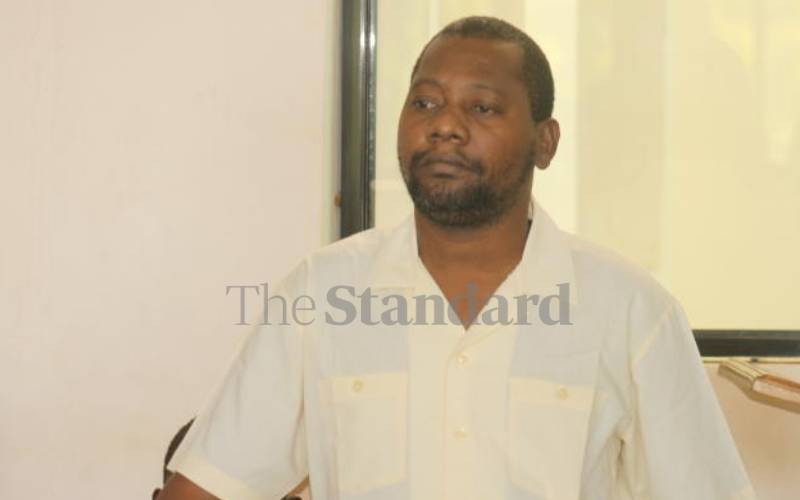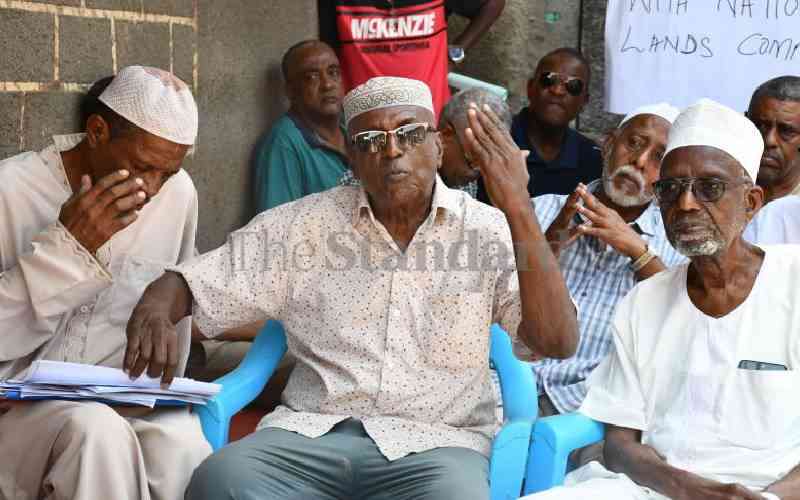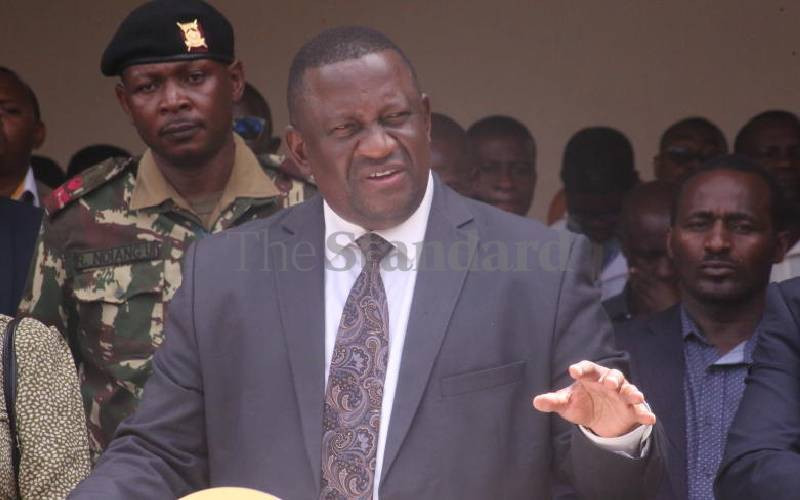By Njuguna Mutonya
There are as many variations of opinions to former Tourism Minister Najib Balala’s appointment as Cabinet Secretary for Mining as there are stars under the sky.
Some of them are provoked by sheer party positioning while others are outbursts of anger by those who had written his political epitaph after his many years of wrestling with some of the forces that run Mombasa business.
But in the same vein, there is general relief from a constituency that has been wringing its hands in silent agony as the power matrix in the region seemed headed for a monolithic control by a group whose real designs despite public pronouncements were still unclear.
This is the constituency, which had thrown its weight behind some of the newcomers, and which had hoped that the many years of anarchy and lethargy at the Mombasa Town Hall could be jettisoned with some fresh blood in power. They, however, lost.
It is this feeling of weariness and desperation that has prompted the current governor Hassan Joho to launch a publicity campaign to rid the town of its garbage, bad roads and drugs, all which were identified with the former settlers in Town Hall.
Balala has always represented a sometimes elitist but nationalistic front of professionals cutting across the tribal and racial panorama, which saw in him a departure from the conservative and laid back Coastal culture that those ignorant of the rich heritage attribute to the failures of corrupt regimes. By appointing Balala into the Cabinet, President Uhuru has thrown a spanner in the works of those who thought that they could even in these days of devolution use the political power base for protection of personal interests and whims.
But again, it is a mark of the vintage Balala political strategy in which risk taking is second nature to him as evidenced in his public career, which has seen him take dramatic positions that are fed by calculations, which leave even his closest friends sometimes agog.
In 2005, he joined Raila Odinga and Uhuru Kenyatta in a political gamble against the Wako Draft referendum that earned him the sack from the Cabinet, but which they won.
In 2007, he mobilised heavily for the Orange Democratic Movement of Raila bringing on board Kaya Elders and Muslim Clerics in one of the stiffest fought political battles in Kenya, but which they lost leading to the tribal clashes which claimed over 1,000 lives and displaced over 600,000 residents mainly in the Rift Valley.
He was rewarded with the Cabinet portfolio in Tourism in which he excelled despite a severe fallout with the Prime Minister whom he felt was out to sabotage his efforts but he hung in there barely.
It was obvious from all and sundry that he would not be on the ODM scorecard and it was only a matter of time before he would show his hand.
This he did in dramatic fashion when he registered and publicly launched the Republican Congress Party (RCP) with much aplomb and brouhaha in Mombasa streets riding on a stallion, which is the party’s symbol and mascot.
This is the party with which he would negotiate for a central position at the Jubilee table together with Charity Ngilu of the National Rainbow Coalition (Narc) and William Ruto’s United Republican Party (URP).
Together with the flagship The National Alliance (TNA) of Uhuru Kenyatta, they formed the Jubilee Coalition, which engaged in a glitzy and well-oiled campaign, that finally won the hearts of the majority of Kenyans.
Stay informed. Subscribe to our newsletter
Although the Jubilee Coalition performed dismally in the region, the sheer effort and energy put in by Balala was what gave political pundits the courage to predict a soft landing for him in the Jubilee government and all predicted that he would again land the Tourism docket.
The Mining ministry, which he has been bequeathed, might be a blessing in disguise especially after the recent enactment of the Mining and Minerals Act 2011, which gives immense powers to the Cabinet Secretary to determine the operations and licensing of the players who operate in the sector.
More relevant is the fact that the Coast province is home to vast amounts of natural minerals from Titanium deposits in Kwale and Kilifi, Niobium in Kwale, massive Gemstones deposits in Taita Taveta and iron ore in Kishushe area of Taita Taveta County.
Of course there is the coal in Kitui and the gold deposits in Western and Nyanza region amongst others. The contentious relations that have existed between the exploiters and investors on one hand and the local communities on the other hand will mean a complete re-engagement exercise to ensure that the Kenyan people are never again short changed by international conglomerates.
This leveling out of business opportunities will give the Cabinet Secretary an opportunity to address historical injustices that have existed for many decades because finally we have the necessary legal instruments and regulatory powers to benefit our people.
Kenyans will watch to see how the new contracts will be phrased and whether they can reap more benefits from existing extractions, which in the least of possibilities, should be processed right here to provide employment for our people. Mombasa politics has always played like Arthur Koestler’s swings’ Law of Motion in which society moves from one extreme position to the other and the seemingly right wing swing which the last general election had thrown the towns politics has now been tempered with the new matrix of power balancing.
This is healthy for the residents of Mombasa and it will neuter any designs that might be phallanxed against the public interest by any of the competing forces in the towns at times radical politicking.
It is all right to have strong feelings against any of the political players like is evident in the town’s dramatic history but it is this dialectical positioning that allows for veritable checks and balances, which is essential for the towns growth and development.
It is this combination of opposites that determined the Arab-Portuguese conflicts in the Middle Centuries, the Mekatilili wa Menza-led Giriama Rebellion against the British and much later, the Islamic Party of Kenya intifada against Moi’s Kanu before the advent of government-sponsored ethnic clashes.
The writer is a journalist, consultant
 The Standard Group Plc is a
multi-media organization with investments in media platforms spanning newspaper
print operations, television, radio broadcasting, digital and online services. The
Standard Group is recognized as a leading multi-media house in Kenya with a key
influence in matters of national and international interest.
The Standard Group Plc is a
multi-media organization with investments in media platforms spanning newspaper
print operations, television, radio broadcasting, digital and online services. The
Standard Group is recognized as a leading multi-media house in Kenya with a key
influence in matters of national and international interest.
 The Standard Group Plc is a
multi-media organization with investments in media platforms spanning newspaper
print operations, television, radio broadcasting, digital and online services. The
Standard Group is recognized as a leading multi-media house in Kenya with a key
influence in matters of national and international interest.
The Standard Group Plc is a
multi-media organization with investments in media platforms spanning newspaper
print operations, television, radio broadcasting, digital and online services. The
Standard Group is recognized as a leading multi-media house in Kenya with a key
influence in matters of national and international interest.









